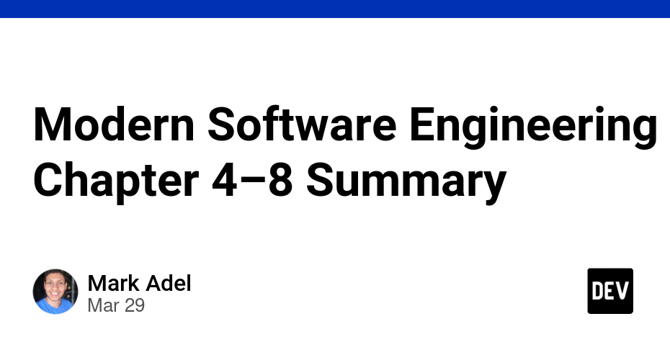Dev
4w
62

Image Credit: Dev
Modern Software Engineering Chapter 4–8 Summary
- Iteration is crucial for learning, allowing for mistakes to be corrected or advances to be enhanced by progressively approaching goals, similar to how evolution and modern machine learning operate.
- Software development benefits from an iterative approach, promoting learning through small steps and quickly trying out ideas to discover what truly works.
- Continuous Integration and Continuous Delivery practices align with iterative thinking, emphasizing frequent, small changes that enhance code quality and support a learning culture.
- Feedback is essential for learning in software development, enabling quick validation of correctness and aiding in catching mistakes and design issues early on.
- Continuous integration promotes regular feedback, offering insight into code behavior throughout the working day and encouraging a design approach that sustains deployability.
- Incrementalism complements iterative approaches by focusing on delivering value incrementally, allowing for changes and deepening understanding as systems evolve.
- Empiricism in software engineering advocates decision-making based on real-world evidence and observations, challenging assumptions and promoting rigorous attention to facts to avoid self-deception.
- Empiricism enhances problem-solving by basing decisions on real-world evidence rather than assumptions, helping developers challenge biases and address complex engineering problems effectively.
- Being experimental in software development shifts decision-making from authority-based to evidence-based, promoting hypothesis-driven experiments, continuous feedback, and a focus on empirical evidence.
- Controlling variables, accurate measurements, and a hypothesis-driven approach are essential in conducting experiments in software development to gather reliable data and drive continuous improvement.
Read Full Article
3 Likes
For uninterrupted reading, download the app